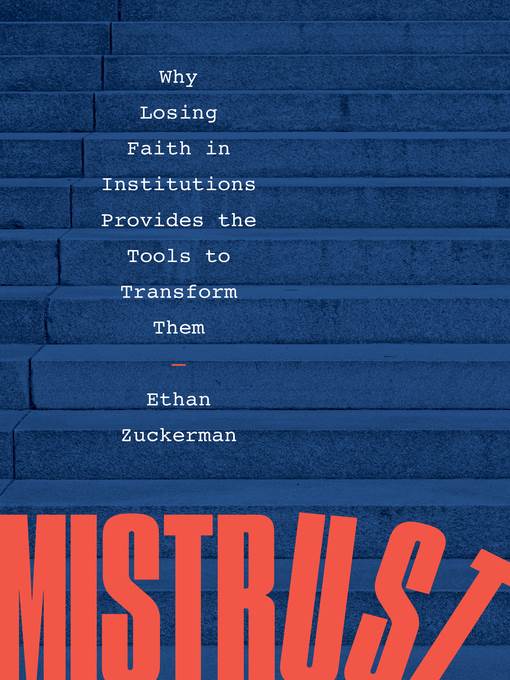
Mistrust
Why Losing Faith in Institutions Provides the Tools to Transform Them
کتاب های مرتبط
- اطلاعات
- نقد و بررسی
- دیدگاه کاربران
نقد و بررسی

October 5, 2020
MIT Media Lab scholar Zuckerman (Digital Cosmopolitans) examines high levels of mistrust in social institutions across the Western world in this passionate yet somewhat meandering account. Zuckerman labels the election of Donald Trump in the U.S., passage of the Brexit referendum in the U.K., and the rise of populist strongmen in Hungary and Poland as right-wing “insurrections” that have exposed widespread public frustration with “the limits of our government and corporate systems.” Zuckerman examines the causes of these dissatisfactions, including rising inequality and greater public access to information (and misinformation), and offers a wide-ranging discussion of the ways in which battered institutions can be rebuilt and replaced. He draws from the works of Francis Fukuyama, Hannah Arendt, and Albert Hirschman, and references political, corporate, and social disruptions ranging from the Black Lives Matter and #MeToo movements to Bitcoin and Elon Musk’s SpaceX. Ending with a comparison of America during the Covid-19 pandemic to New Orleans after Hurricane Katrina, Zuckerman argues that democratic participation is vital to enacting change and implores voters not to disengage from the political sphere. Readers hoping the 2020 elections bring a sea change in American politics will be galvanized by this optimistic account.

October 1, 2020
An overview of the causes of our mistrust in the institutions we once held sacred. In this study of how to rebuild faith in society and each other and enter into a new compact with our fellow citizens, Zuckerman, former director of MIT's Center for Civic Media, examines the struggle between institutionalists (those who believe we can reform existing structures) and insurrectionists (those seeking to tear it down and start anew). As organizations grow old, they inevitably fall out of touch with those they are meant to serve, resulting in widespread mistrust. All readers will agree that government, industry, and other trusted bodies have failed us in one way or another, and the author provides them with ample statistical data to prove it. How best to rebuild that trust--from within or without? It would be too easy for Zuckerman to criticize skeptics and insurrectionists as cranks or lunatics. Instead, the author provides solid examples of the many insurrectionists who have upended industries, including Uber, Tesla, and Airbnb. The founders of these companies identified needs missing in the market and leveraged this absence into transformative new businesses. Of course, there are downsides, which the author shrewdly considers. Uber, for example, has wreaked havoc on the taxi industry, forcing many drivers out of the business altogether. In the political arena, authoritarian power is always a lurking danger. Zuckerman discusses how the Sicilian Mafia rose to power as an insurrectionist response to inadequate governmental structures. Similarly, elected officials such as Donald Trump present themselves as populist insurrectionists, but they often bring with them dangerous strongman tactics. "Mistrust," writes the author, "is the single, critical factor" that led to his election. Throughout, the author uses concrete examples to illustrate his points--sometimes too many examples. The narrative could have benefitted from a deeper focus on fewer topics. A wide-ranging, occasionally overwhelming book that condemns failed institutions and challenges us to make needed change.
COPYRIGHT(2020) Kirkus Reviews, ALL RIGHTS RESERVED.

























دیدگاه کاربران